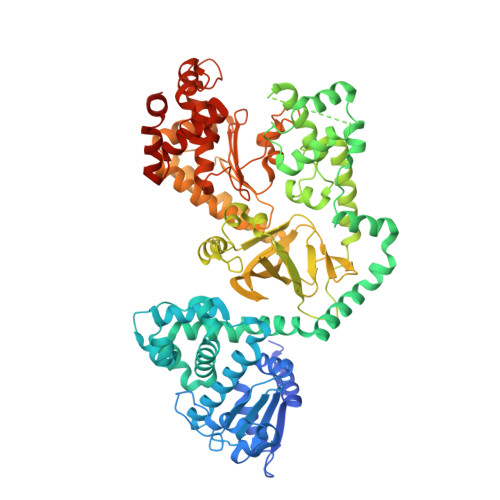Efficient synthetic inhibitors of anthrax lethal factor.
Forino, M., Johnson, S., Wong, T.Y., Rozanov, D.V., Savinov, A.Y., Li, W., Fattorusso, R., Becattini, B., Orry, A.J., Jung, D., Abagyan, R.A., Smith, J.W., Alibek, K., Liddington, R.C., Strongin, A.Y., Pellecchia, M.(2005) Proc Natl Acad Sci U S A 102: 9499-9504
- PubMed: 15983377
- DOI: https://doi.org/10.1073/pnas.0502733102
- Primary Citation of Related Structures:
1ZXV - PubMed Abstract:
Inhalation anthrax is a deadly disease for which there is currently no effective treatment. Bacillus anthracis lethal factor (LF) metalloproteinase is an integral component of the tripartite anthrax lethal toxin that is essential for the onset and progression of anthrax. We report here on a fragment-based approach that allowed us to develop inhibitors of LF. The small-molecule inhibitors we have designed, synthesized, and tested are highly potent and selective against LF in both in vitro tests and cell-based assays. These inhibitors do not affect the prototype human metalloproteinases that are structurally similar to LF. Initial in vivo evaluation of postexposure efficacy of our inhibitors combined with antibiotic ciprofloxacin against B. anthracis resulted in significant protection. Our data strongly indicate that the scaffold of inhibitors we have identified is the foundation for the development of novel, safe, and effective emergency therapy of postexposure inhalation anthrax.
Organizational Affiliation:
Burnham Institute, Cancer Research Center and Infectious and Inflammatory Disease Center, 10901 North Torrey Pines Road, La Jolla, CA 92037, USA.
















